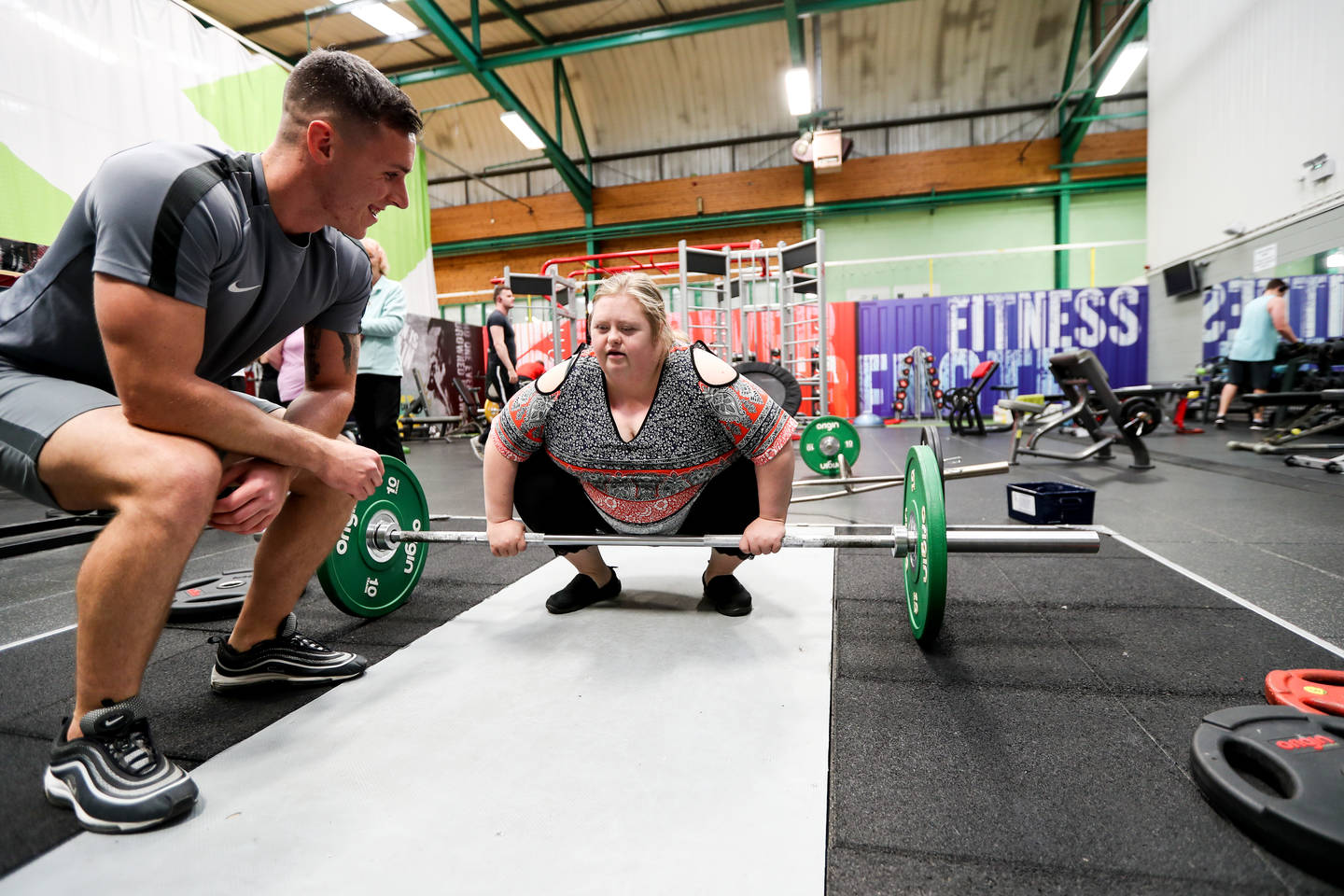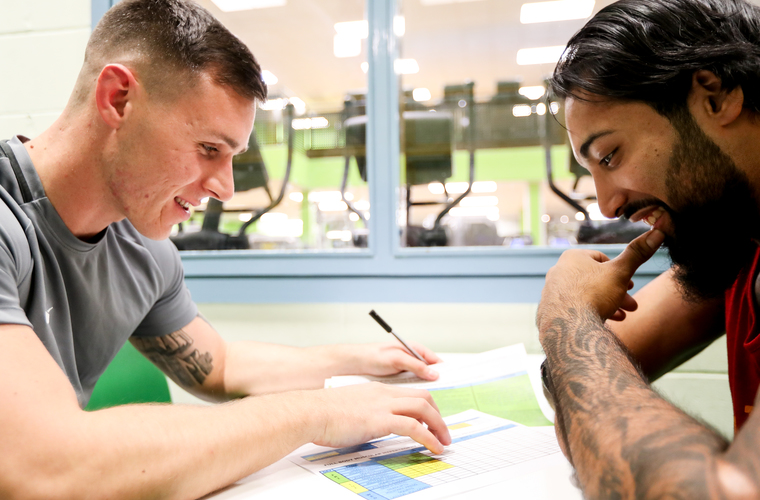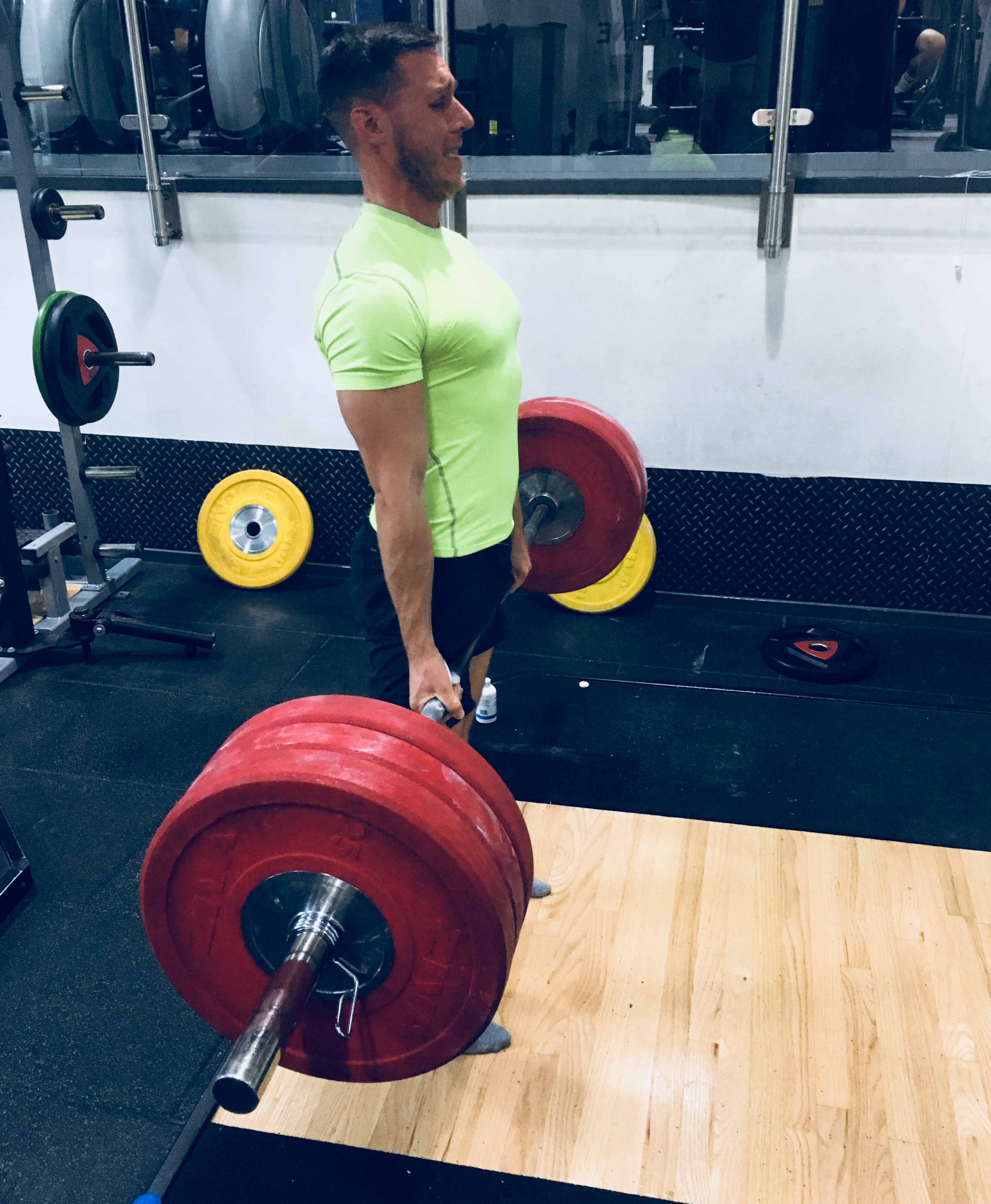Blog: “It’s about being proactive and creating the opportunities”
Activity Alliance features a blog post every Friday. This year we have been sharing experiences of disabled people involved in sport and exercise at all levels. In the week of National Fitness Day, we continue this theme and hear from health coach and founder of Empower You, Ben Andrews, on tackling the barriers of inactivity.

Hello, I’m Ben Andrews, I’m 25 years-old and live in Salford. I’m an avid gym goer, health coach and founder of Empower You. I have a degenerative eye condition called Retinitis Pigmentosa.
I’ve been going to the gym for about nine years now. I mostly weight train and do cardiovascular work. As part of my Empower You health coach role I also meet with clients twice per week (usually over a 12 week period), supporting the person’s or groups confidence and motivation, and create an environment in which they are able to maintain their activity independently.
I really enjoy being active as it’s something positive to do and I enjoy pushing myself. Being active also helps me feel more confident in myself and healthier. This positive energy is essential as it allows me to deliver the best sessions I can for my clients.
I always feel good after a workout and I always get this feeling of euphoria. The endorphins flow and you just feel good, there’s no other way to describe it really. You feel much more motivated and afterwards you are able to be much more productive – I love being able to pass this feeling on to my clients.
I’ve always been passionate about fitness, but my journey to inclusive fitness started at the age of 17 when I gained my level two Gym Instructor qualification and started attending the gym alongside my mum, who at this point was registered blind. I started to think there had to be more people in this position who would benefit from being active, but might need some support to do so.
I then began volunteering around Salford, delivering healthy lifestyle sessions to a range of disabled people, and assessing what was available locally for disabled people to keep active. At 19 I tried to put a report together to state the case for a gym instructor to specifically work with disabled people. Having never written a report before and lacking any clear evidence based or rational, unsurprisingly the report didn’t go very far.
Knowing I’d need more knowledge and experience to make this work, I approached Salford University. Enrolling on an Exercise and Health Sciences degree, my time at Salford University offered me the opportunity to research areas relating to disabled people. Specifically exercise interventions, preventative initiatives and long-term conditions, enabling me to build a case, which a few months after graduating, I submitted to NHS Salford Commissioning Group.
In 2015, Empower You was born. It’s been funded by the NHS Salford Commissioning Group ever since to work with disabled people on a one-to-one basis and more recently with groups. In a nutshell, Empower You supports disabled people and their carers to lead more active lifestyles.
Empower You aims to break down barriers and create opportunities for disabled people to keep active within their communities. Since delivering Empower You, I’ve learnt that having that second person with you is so important to help you maintain your activity long-term, which is why the ‘buddying’ aspect has become such a big part of the programme.
 I’ve also learnt the biggest barrier for a provider is lack of knowledge, confidence in supporting disabled people to keep active as well as a lack of association between disabled people and their activity offer. My advice to providers who want to offer a more inclusive and accessible activity offer is seek training to provider staff with the skills and knowledge to support disabled people in your activity staff. I would also urge staff to seek opportunities to spend time with disabled people and learn what works for people with a range of impairments. In most cases, it’s the smallest adjustments that can have the biggest impact. From there it is about being proactive and creating the opportunities for disabled people to engage with. I’m currently developing a qualification alongside disabled people which brings all of this together.
I’ve also learnt the biggest barrier for a provider is lack of knowledge, confidence in supporting disabled people to keep active as well as a lack of association between disabled people and their activity offer. My advice to providers who want to offer a more inclusive and accessible activity offer is seek training to provider staff with the skills and knowledge to support disabled people in your activity staff. I would also urge staff to seek opportunities to spend time with disabled people and learn what works for people with a range of impairments. In most cases, it’s the smallest adjustments that can have the biggest impact. From there it is about being proactive and creating the opportunities for disabled people to engage with. I’m currently developing a qualification alongside disabled people which brings all of this together.
My advice to disabled people who are thinking about being more active – there’s no reason you can’t be active. We don’t all have to be Paralympians or competitive athletes, just do it for your health and confidence, keeping active becomes a really positive aspect of your life. I’ve never come across anyone who’s become more active and regrets doing so.
If you’re concerned about how others may react or the adjustments that you might have to make, remember they are all doable, you just might be the first to do them, and it paves the way for others with similar impairments or experiences as you to be active in the future.
For disabled people looking to become activity providers, I’d say go for it. You bring a wealth of lived-experience, understanding and awareness that others do not.
Find out more about Empower You via its website, Facebook , Twitter and Instagram. You can also follow the Empower You YouTube channel for videos on all things relating to disabled people and keeping active.
